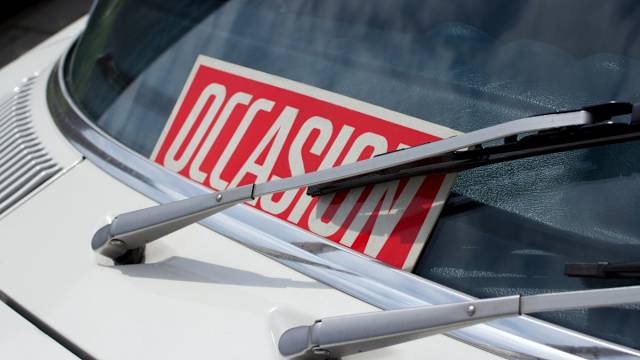Used cars: tips for buying a second-hand car
How do I tell the good used cars from the bad? Comparis has put together some tips for successfully buying a second-hand car.

29.11.2023

adobe stock / rh2010
1. How to find the right used car for you
The market for second-hand cars is huge and often difficult to navigate. Having clear ideas about the car you want simplifies your search for a car.
Compile a wish list
Write down the most important criteria. These include: make, model, age, price or engine type.
Ask yourself the following questions:
How much should the car cost?
What do I need the car for?
How big should the car be?
How long do I want to keep it?
What type of engine would I like?
Which optional extras are important to me?
Compare prices
Search and compare different offers on the Comparis car marketplace. The Comparis rating shows how well an offer compares to similar listings.
2. What to keep in mind when buying a used car
Once you’ve found a car you like, be sure to go for a test drive. Take your time for it. It will likely take you more than a kilometre to spot any potential problems. Also, test drive the car on different types of road (on the motorway, in the city, etc.).
Tip: be sure to check the service log book before making a purchase.
Fault checklist for used cars
With the Comparis checklist, you won’t miss any faults with the car.
Do you only have limited knowledge of cars? Get support from a professional. They can help you judge the condition of the vehicle.
Mileage isn’t everything
How much mileage may a used car already have? As is often the case: it depends. A vehicle with many kilometres of motorway use is often in better condition than cars with fewer kilometres but in urban traffic.
Generally, the maximum possible mileage of a car varies depending on the make, model, care and maintenance. As a rule, a diesel car tends to reach more kilometres than a petrol car by the end of its service life.
Keep in mind: the average person in Switzerland drives 12,000 to 15,000 kilometres a year. Company cars sometimes clock up as much as 50,000 kilometres. In the event of larger discrepancies, you should ask why.
Beware of older cars with low mileage: the vehicle may not have been used for a long time and could have idle wear. This could include a dead battery, flat spots on tyres, rusty brake discs, leaking rubber seals and a musty air conditioning system.
Buy from a reputable seller
You can tell whether a seller is trustworthy based on the following signs:
They offer you a test drive without you having to ask.
The service log book is complete without any gaps.
The car was only recently listed.
Ask about any previous repairs
Be sure to ask about previous accidents and repairs. Please note: private sellers are also obliged to disclose accident damage. If you are in any doubt, get an expert to take a look at the used vehicle. Such offers are available, for example, from TCS.
Insist on a purchase agreement
purchase agreement is not required by law, you should always insist on a written contract. The contract should include information on the vehicle warranty, for example. This will make any future disputes easier to resolve. You can find more information about purchase agreements as well as a template contract here.
Negotiate
When buying a car, don’t settle for the first deal you’re offered. Dealers and sellers often have some leeway. This means: negotiating properly can often pay off. To prepare, it is worth comparing prices of similar vehicles. The Comparis vehicle valuation tool can help here, for example.
3. Tips on financing and insurance
Do you need a car urgently, but money is tight? Leasing could be the answer. But please note: leasing is not usually the best option for used cars. That’s because leasing companies often insist that you take out full casco insurance, which doesn’t make sense for many second-hand vehicles. A personal loan may be another possibility.
Choose the right insurance
Full or partial casco insurance and many supplementary insurance policies are not always worthwhile for second-hand cars. Find out more about what car insurance is best for you.
4. After the purchase: maintain the car
Even though you have “only” bought a used car, you should take good care of the car. This will increase the service life. Plus: if you sell it on in the future, you will have better sales opportunities with a well-maintained vehicle.
Do you want to determine the true market value of your dream car? Here you can calculate the car’s value free of charge.
This article was first published on 23.04.2017

